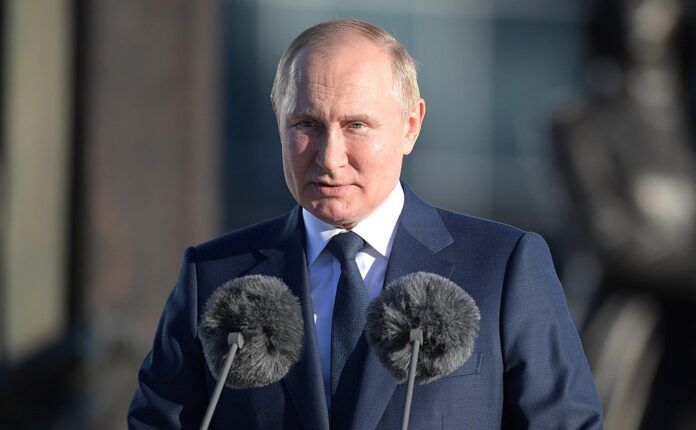Russian President Vladimir Putin emphasizes the need for calm and restraint during a critical call with Iran’s President Ebrahim Raisi, amid escalating Middle East tensions
In a recent development that underscores the volatility of Middle East geopolitics, Russian President Vladimir Putin has made a plea for restraint following Iran’s missile and drone attack on Israel. During a phone conversation with Iranian President Ebrahim Raisi, Putin expressed concern over the potential for further escalation, which could lead to catastrophic outcomes for the region. This call came in the wake of a significant military response from Iran, triggered by an Israeli strike on its consulate in Damascus earlier this month.
The Kremlin described the conversation as a discussion on “retaliatory measures taken by Iran” after the Israeli attack that resulted in the deaths of several members of the Islamic Revolutionary Guard Corps, including two generals. Putin’s call to avoid actions that could spark a new confrontation was emphasized, highlighting the delicate balance of power in the region and the potential for widespread conflict.
Embed from Getty ImagesIran’s attack on Israel, which involved hundreds of drones and missiles, was a direct response to the Israeli strike in Damascus. This marks a significant escalation in the direct confrontations between the two states, raising alarms about the stability of the Middle East. The Kremlin relayed that Putin underscored the Israeli-Palestinian conflict as the root cause of the ongoing instability in the region.
In the detailed dialogue, Raisi defended Iran’s actions as “forced and limited in nature,” aimed at addressing immediate threats without intending to provoke further escalation. He also noted the lack of action from the international community and the counterproductive role of some Western countries, which he argued left Iran with no choice but to respond militarily.
Further, the Russian leader and Raisi concurred on the urgency of addressing the humanitarian situation in the Gaza Strip and pushing for a ceasefire, which they believe could pave the way for a diplomatic resolution to the broader Palestinian-Israeli conflict. Both leaders reiterated their support for a political settlement that acknowledges the need for an independent Palestinian state within the borders of 1967.
This high-stakes discussion between Putin and Raisi occurs as global attention is fixed on the escalating tensions in the Middle East, with significant implications for international peace and security. The conversation also highlighted the close diplomatic ties between Russia and Iran, which have been fortified amidst the ongoing conflict in Ukraine, where Iran has supplied Russia with military aid.
As the situation develops, the international community remains watchful, hoping that diplomatic efforts will prevail to de-escalate the situation and avoid further loss of life and stability in the region.
